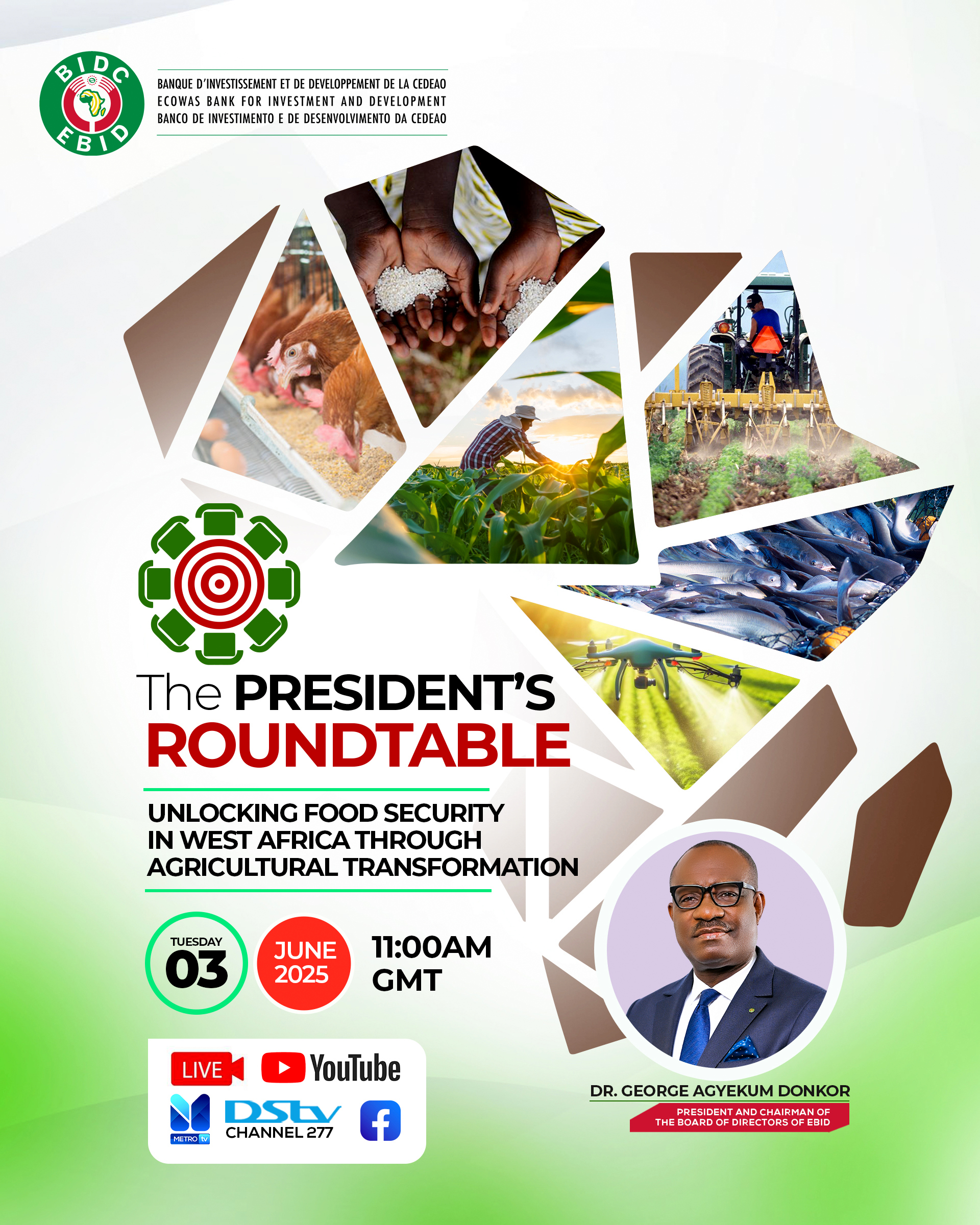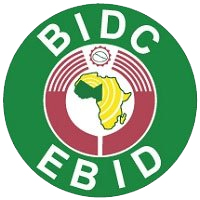
President’s Roundtable 2025: Enhancing Food Security in West Africa through Agricultural Transformation
Introduction
According to the World Bank, food security remains at alarming levels in most low-income countries, particularly in Africa, where an estimated 61.6 million people in East Africa are food insecure. Additionally, nearly 50 million people are expected to face food insecurity in West and Central Africa, with conflicts and climate change remaining the primary drivers.
The ECOWAS Bank for Investment and Development (EBID) has made the fight against food insecurity in the ECOWAS region a top priority under its 2025 Strategy, with the aim of helping member states achieve SDG 2 (Zero Hunger) and SDG 3 (Good Health and Well-being). The Bank has already financed over USD 133 million in agricultural and agro-industrial projects and programs to strengthen food system resilience in the sub-region. However, the critical nature of food security requires additional interventions and innovative measures to address the issue.
Food Security Challenges
According to the 2024 “Financing Flows and Food Crises” report, only 3% (USD 6.3 billion) of total development funding is allocated to the food sector, compared to 33% (USD 10.3 billion) directed toward global humanitarian aid. In 2023, 281 million people experienced acute food insecurity, while humanitarian assistance to food-related sectors dropped by 30% compared to 2022, despite a 56% increase in aid since 2016.
High prices, worsened by extreme weather events and conflicts, have increased food insecurity across many West and Central African countries. Nearly 50 million people are projected to face food insecurity during the June–August 2025 lean season.
According to FAO’s Food Price Monitoring and Analysis data, secondary cereal prices showed mixed month-on-month trends across Sahel countries and along the Gulf of Guinea in December 2024 and January 2025. However, in many countries across the sub-region, prices were higher compared to the same period last year.
Sources:
[1] https://www.fightfoodcrises.net/sites/default/files/resource/file/FFFC2024_FINAL.pdf (accessed May 3, 2025)
[2] https://www.fao.org/giews/food-prices/home/en/ (accessed May 3, 2025)
Theme
The theme of the 2025 edition of the President’s Roundtable is:
“Enhancing Food Security in West Africa through Agricultural Transformation.”
The event aims to explore collaborative efforts to address the region’s food security challenges and identify actionable solutions that will help build a more resilient future for ECOWAS countries. Emphasis will be placed on the root causes of food insecurity and on innovative ways to ensure food security in West Africa. Discussions will focus on food insecurity, food security policies, and innovative responses to food insecurity.
Date and Venue
The program will take place on June 3, 2025, in the Metro TV studios in Accra, Ghana.
Dialogue Format
The President’s Roundtable will be held in a fully equipped television studio and will be broadcast live on DSTV and the digital platforms of EBID and DSTV. The format will consist of a roundtable discussion involving experts, including the President of EBID and professionals from the development finance and agriculture sectors.
Panelists will provide key insights, data, and perspectives on food security challenges and opportunities for achieving food sovereignty. The discussion will be moderated by an experienced communicator who will pose a series of structured questions to the panelists.
Program Sessions
- Session 01: Food Insecurity and Policy Responses in West Africa
- Session 02: Climate-Smart Responses to Food Insecurity in West Africa
- Session 03: How Development Finance Institutions Can Build the Capacity of Public and Private Actors to Address Food Insecurity in West Africa
Moderator
Ms. Anita ERSKINE, Executive Director, Erskine Global Communications
Conclusion
The President’s Roundtable will place a spotlight on food insecurity in West Africa and offer a platform for panelists to share in-depth knowledge and understanding of the issue, as well as to present strategic responses.
Fighting food insecurity through the financing of agricultural initiatives and enterprises is a core focus area for EBID. Accordingly, the event will not only highlight the Bank’s efforts in terms of financing and partnerships but will also serve as a forum for dialogue on other innovative approaches to ensuring food security in the ECOWAS sub-region.



